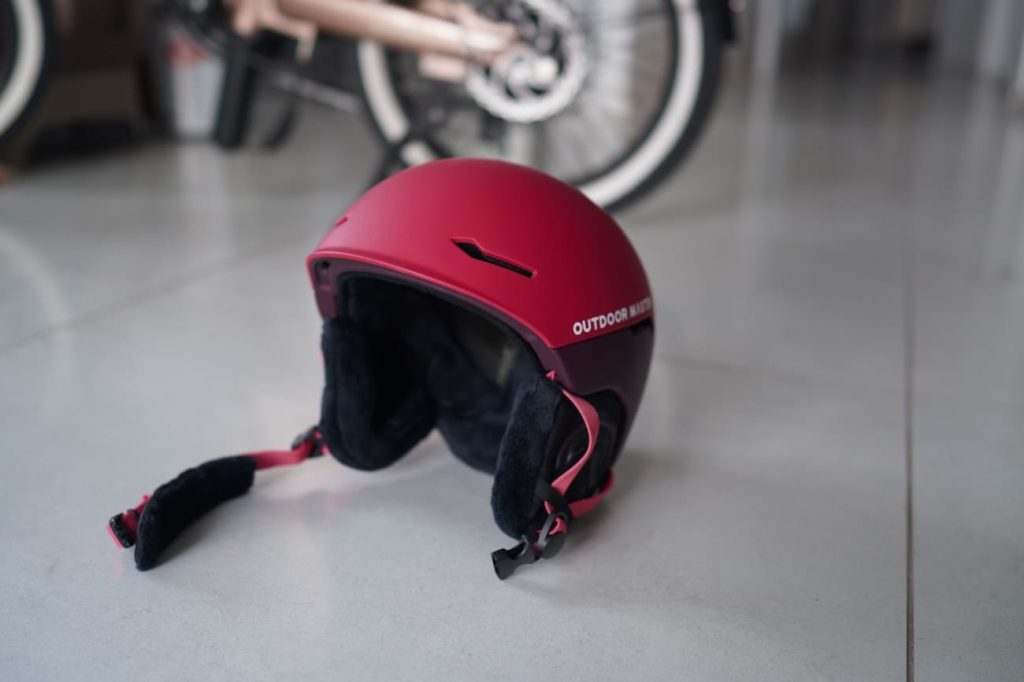Thanks to electric bikes, more people than ever before are discovering the joys of car-free living. Many others find that they can at least leave their car in the garage more often, using an e-bike instead for many of their around-the-town trips and errands. But when the weather is cold, e-bikes can sometimes feel less enticing. For anyone who has dreaded the rude awakening of cold air in your face, I think I might have found a trick that can help: swapping a typical bike helmet for an insulated ski helmet.
I’m not saying that I know how to ride in the Arctic, but I’ve found some tricks over the years for moderately cold weather riding. The coldest place I’ve ever lived and cycled through the rough months was Pittsburgh, where e-biking in the winter meant seriously bundling up. I even used a full-face motorcycle helmet with a scarf shoved up into the neck hole, keeping a bubble of warm air around my face.
Fortunately, I don’t live anywhere that cold anymore that I need a full-face helmet to stay warm, but even moderate winters can still turn your ears into numb face flaps when you’re cruising along at 20 mph (32 km/h) or more.
This is my wife’s first year riding her e-bike to work every day, and when the weather got cold, she complained about her ears freezing. Between you, me, and the internet, I’ve just been powering through with cold ears, but I didn’t want her to suffer in her first winter of e-biking. Sure, she bundles up with a coat and gloves, but a typical bicycle helmet makes it hard to wear most ear muffs or fuzzy headbands.

So I figured we’d try something new. I searched around and found that ski helmets might be a good solution. They’re already insulated and designed for going fast in cold air, plus they come with plenty of safety features. Skiers don’t have to worry about getting doored, but apparently getting treed can be just as bad.
So it turns out that bicycle helmets and ski helmets have a lot in common in the design and safety features. There are even several ski helmets that have MIPS protection just like a bicycle helmet, which helps to protect against not only blunt force trauma but also rotational trauma that can be just as dangerous when your brain suddenly twists and turns in an impact. I chose one with MIPS for that added protection.
The model I bought is from Outdoor Master and is priced at $79, but there are tons of good ski helmets out there to choose from. This one has some nice features that make it great for biking as well, such as vents so your head doesn’t get too hot from pedaling, fuzzy ear covers with negative space so they don’t crush your ears, a fuzzy interior lining with matching fuzzy strap cover for your chin, and it uses a similar size adjustment band like most bicycle helmets.
There’s a bungee strap on the back that I’m not entirely sure what its purpose is – perhaps holding the strap of a pair of ski goggles, but we just don’t use that feature.

It’s my wife’s helmet and so I’ve had to ask her for feedback since I tend to use a rotating list of various helmets based on whatever is closest to the door. So far she’s been thrilled with how much more comfortable the helmet is in the winter, though she complained a bit about its more bulbous shape giving her a slight bubble head. That might be related to the extra space in the helmet for the insulation, causing the outer shell to extend a bit further than most bike helmets.
All told though, she seems very happy with the helmet and even liked that there were over a dozen colors to choose from. At $79, it’s got a fairly middle-of-the-road price compared to most decent cycling helmets. It’d be nice if it had a built-in front and rear LED light, which I imagine is not something most skiers need, but she could always add a headlamp if she really wanted.
I’d call this experiment a success, and perhaps next year I’ll get myself a ski helmet too so I’m ready for some winter cycling without the cold ears!

Read the full article here


